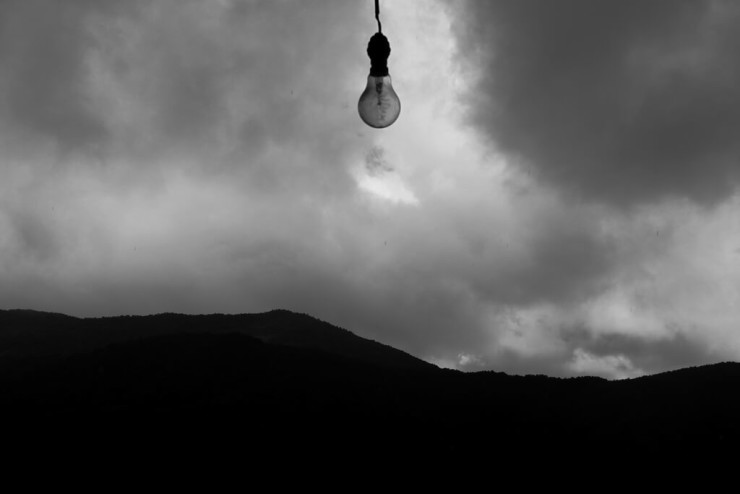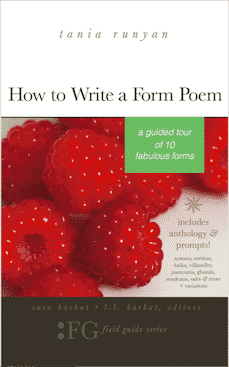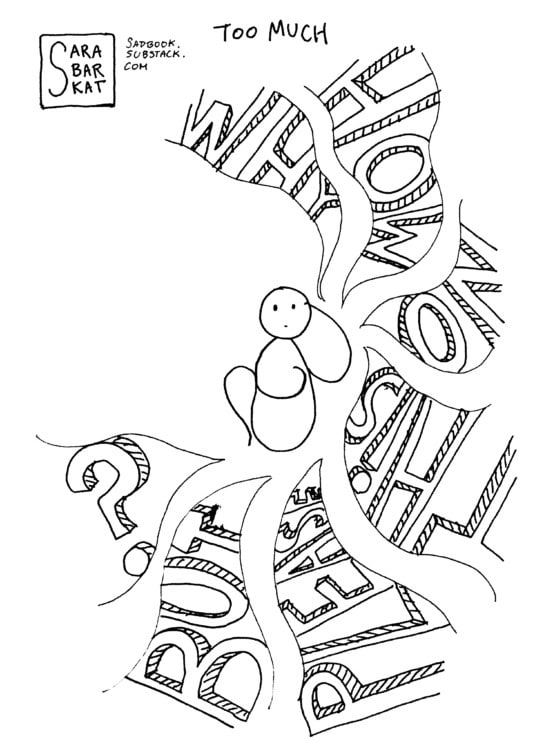Top 10 Best Questions Poems!
Michael Card once sang, “Is it true that questions tell us more than answers ever will?” It’s no accident, I think, that his commentary on questions was posed as a question, not as an answer.
There’s something comforting, I suppose, about hard data and definitive answers, and something less reassuring about the ambiguity of unanswered questions. What if, though, we allowed ourselves the space that questions offer? What if we opened ourselves to the possibilities that questions permit—the sort of possibilities that definitive answers can sometimes close off?
Pablo Neruda’s Book of Questions is a collection of questions for question’s sake. Many are full of whimsy. Some are poignant, others pointed. But all of them create a space for wonder and imagination without the obligation of reaching a conclusion. Questions like
Is 4 the same 4 for everybody?
Are all sevens equal?
What color is the scent
of the blue weeping of violets?
Why doesn’t Thursday talk itself
into coming after Friday?
If I have died and don’t know it
of whom do I ask the time?
Poems ask wonderful questions, sometimes without including a single question mark. We’ve gathered a collection of poems with questions, some answered and some unanswerable. Have other favorite question poems? Tell us in the comments.
1. Sawdust
Why not lindendust,
hackberry, hemlock,
live oak, maple, why
name the remains
after the blade, not
what it cut—
only now do I see
that the air is full
of small sharp stars
pinwheeling through
every living thing
that gets in their way.
2. How Do I Love Thee? (Sonnet 43)
How do I love thee? Let me count the ways.
I love thee to the depth and breadth and height
My soul can reach, when feeling out of sight
For the ends of being and ideal grace.
I love thee to the level of every day’s
Most quiet need, by sun and candle-light.
I love thee freely, as men strive for right.
I love thee purely, as they turn from praise.
I love thee with the passion put to use
In my old griefs, and with my childhood’s faith.
I love thee with a love I seemed to lose
With my lost saints. I love thee with the breath,
Smiles, tears, of all my life; and, if God choose,
I shall but love thee better after death.
—Elizabeth Barrett Browning
3. Saudade
Like ghosts become flesh for the first time
we came to the land of the living
tasted the bread
sipped the wine
spoke the language of belonging.
In a tent on a hill walled by green
we gathered for one more meal.
I watched twilight
dance with candlelight
and breathed in a hint of truly alive.
Can you be sick for a home you’ve never seen?
Sometimes the curtain flutters,
and I catch a glimpse
of a fawn in the shadow
that bids me to follow.
I can’t. Not yet.
But I am coming home.
Click to get FREE 5-Prompt Mini-Series
4. Ghazal 838
if you pass your night
and merge it with dawn
for the sake of heart
what do you think will happen
if the entire world
is covered with blossoms
you have labored to plant
what do you think will happen
if the elixir of life
that has been hidden in the dark
fills the desert and towns
what do you think will happen
if because of
your generosity and love
a few humans find their lives
what do you think will happen
if you pour an entire jar
filled with joyous wine
on the head of those already drunk
what do you think will happen
go my friend
bestow your love
even on your enemies
if you touch their hearts
what do you think will happen
—Rumi, translated by Nader Khalili
5. Miracles
Why, who makes much of a miracle?
As to me I know nothing else but miracles,
Whether I walk the streets of Manhattan,
Or dart my sight over the roofs of houses toward the sky,
Or wade with naked feet along the beach just in the edge of the water,
Or stand under trees in the woods,
Or talk by day with any one I love, or sleep in
the bed at night with any one I love,
Or sit at table at dinner with the rest,
Or look at strangers opposite me riding in the car,
Or watch honey-bees busy around the hive of
a summer forenoon,
Or animals feeding in the fields,
Or birds, or the wonderfulness of insects in the air,
Or the wonderfulness of the sundown, or of stars
shining so quiet and bright,
Or the exquisite delicate thin curve of the new
moon in spring;
These with the rest, one and all, are to me miracles,
The whole referring, yet each distinct and in its place.
To me every hour of the light and dark is a miracle,
Every cubic inch of space is a miracle,
Every square yard of the surface of the earth is
spread with the same,
Every foot of the interior swarms with the same.
To me the sea is a continual miracle,
The fishes that swim—the rocks—the motion of the
waves—the ships with men in them,
What stranger miracles are there?
—Walt Whitman
6. Sonnet 18
Shall I compare thee to a summer’s day?
Thou art more lovely and more temperate:
Rough winds do shake the darling buds of May,
And summer’s lease hath all too short a date:
Sometime too hot the eye of heaven shines,
And often is his gold complexion dimmed,
And every fair from fair sometime declines,
By chance, or nature’s changing course untrimmed:
But thy eternal summer shall not fade,
Nor lose possession of that fair thou ow’st,
Nor shall death brag thou wander’st in his shade,
When in eternal lines to time thou grow’st,
So long as men can breathe, or eyes can see,
So long lives this, and this gives life to thee.
7. Cracked
How long can this coffee cup last?
The one with the long crack, from lip to toe?
The one I rely on every single morning
for just the right proportion of coffee to milk?
I bought it, cheap, at a truck stop, in southern Colorado
years ago. It has everything I love on its painted face:
stars, pine trees, a bear roasting marshmallows.
I stick it in the dishwasher every day, but it never
gets clean. It has never failed me, ’til now.
Now I’m trying to make it last, against all odds.
Sip quick before the drips flood the countertop,
before it can no longer hold what I hold dear.
Both of you. Stop fighting. Get in the car.
Just past Oklahoma, there’s a truck stop
with a long row of uncracked cups.
8. On the Eve of Your Thirteen Birthday
for Jeffrey
the last day of twelve
was nothing special,
you said.
you didn’t dress for gym,
didn’t play four-square with
the others. only walked,
you said.
in English, you wrote
a myth…about Gusano—
it means “worm” in Spanish
you said.
this Graco-Spanish
worm-god found freedom,
you said.
but he led his people
back into the
earth to rule the Underworld
and that’s why he will
be responsible for
the zombie apocalypse.
you said.
and math was about
interest, like money and
banks, you know?
you said.
and you have homework
so you came home in
a bad mood and didn’t
want to talk about twelve
you said.
so i hushed and got out
the eggs, cracked them one-by-
one in the bowl and mixed until
those yellow eyes are gone; i
rubbed grease on the pan that is
swathed in black enamel
from years of cradling sweet
batter…and i poured more
in. you at the table building
up interest when the room
starts to smell like a birthday.
and suddenly, you are there,
beside to lick the batter from
the bowl. what time was I
born?
you said.
Click to get FREE 5-Prompt Mini-Series
9. Family Vacation
Blue fish burst from this morning’s tide
like applause, marking an end
to summer. When evening’s color falls, it’s
cottony pastels, the season’s best hour
to swim or bodysurf; the tourists gone,
a few fatheaded seals converge to frolic.
My father ventures farthest, sturdy as he is
amidst the swirls, crests, and currents:
a hurricane’s remnant. My mother’s illness
troubles her gait within a waist-high surf
that’s rough enough for the strongest swimmer,
much less a stem cell transplant patient
in her 60s. Tentative, amphibian-like, I’m
their adult daughter. Yesterday, I pleaded
with my mother to come ashore. “Don’t make me
dead before I’m dead, ” she shouted.
“Live a little”—my father’s refrain.
So I’ll scan the waves, I, who live by trying
to decipher signs: ride or rip tide? Recovery
or remission? And they plunge just ahead
of the water’s breaking, so that when it crashes,
it doesn’t crush them, but rockets them forward
as if to say, today, today, today.
10. Fragments
Do the shells still hear the sea,
though they are in pieces;
how deep does the hearing of the sea
enter into bone.
Photo by Jan Christian Teller. Creative Commons license via Flickr.
Browse more poems by category
________________________

“How to Write a Poem is a classroom must-have.”
—Callie Feyen, English Teacher, Maryland
- Earth Song Poem Featured on The Slowdown!—Birds in Home Depot - February 7, 2023
- The Rapping in the Attic—Happy Holidays Fun Video! - December 21, 2022
- Video: Earth Song: A Nature Poems Experience—Enchanting! - December 6, 2022



L. L. Barkat says
I wonder if many poems are in answer to a question that sits within the poet or is wandering around the world. It would be fun to craft the question that we think a poem is answering.
As for my own poems, I am a little surprised at how often they include questions. Who knew. 🙂
Laurie Flanigan says
I love the collection of poems you’ve selected for this post, and I agree,”Poems ask wonderful questions, sometimes without including a single question mark.” Most, or maybe all, of my poems do. I wrote this one after someone said God would un-create creation at the end of the world. I wondered what would happened if time’s most important events unraveled.
If Easter Unraveled
What if …
the Resurrection happened backwards …
if Roman Legionaries
and Hebrew priests
left the burial cave open,
left it hoping Jesus wouldn’t?
And instead of rolling the stone away
the angel sealed the tomb, and no one
from the upper-room could contemplate
the vacant place as an empty grave?
Or no sword ever penetrated Christ’s flesh
because he complied with the thief on the other side,
the one who spoke in disbelief and spite,
and not the one he’d later see in paradise?
And what if …
we had to live without knowing God
had forgotten every one of our sins,
and rather than riding into heaven
as captives in Christ’s train
we found ourselves trying to explain
our lame attempts to crawl, in
frayed rags, naked places exposed
with no robes to cover us clean
no scented-soaps to scrub our lust pristine …
and since we knew no mercy
we had none to show to those
as much in need of it as we?
What if …
a swift-self-interest speech,
from an outlaw-pontiff and serial thief
accomplished the greatest heist
of all time …
and we were left …
bereft of everything that’s Heaven,
and nothing that is just?
Maureen Doallas says
There is a series of questions in Elizabeth Bishop’s poem “Questions of Travel”; of them, I like this one:
“Oh, must we dream our dreams / and have them, too?”
I like Section III in Neruda’s Book of Questions (I used the last in my Journey into Poetry essay) and Section XIV. I also like the two middle ones in Section XIII: “How do the oranges divide up/ sunlight in the orange tree?” and “Did salt’s teeth come/ from a bitter mouth?” One of the saddest sections, to me, is XLIV. (By the way, there’s a Tumblr site where people have uploaded favorites. It’s interesting to see which set captures others’ imaginations.)
Megan Willome says
Oh, my gosh! I missed this while I was on vacation. I can’t tell you how happy I am to be next to Laura Boggess because that exact poem of hers is in my book.
Monica Sharman says
Megan, I’m so glad Laura’s poem is in your book! It was one of my favorites in Every Day Poems.
Hanna D. says
By far, my favorite question poem would have to be “The Design” by Michael Longley: http://www.poetryfoundation.org/poetrymagazine/browse/167/1#!/20604606
Will Willingham says
Thank you so much for pointing that one out. I’d not read it before but agree, it’s quite something. 🙂